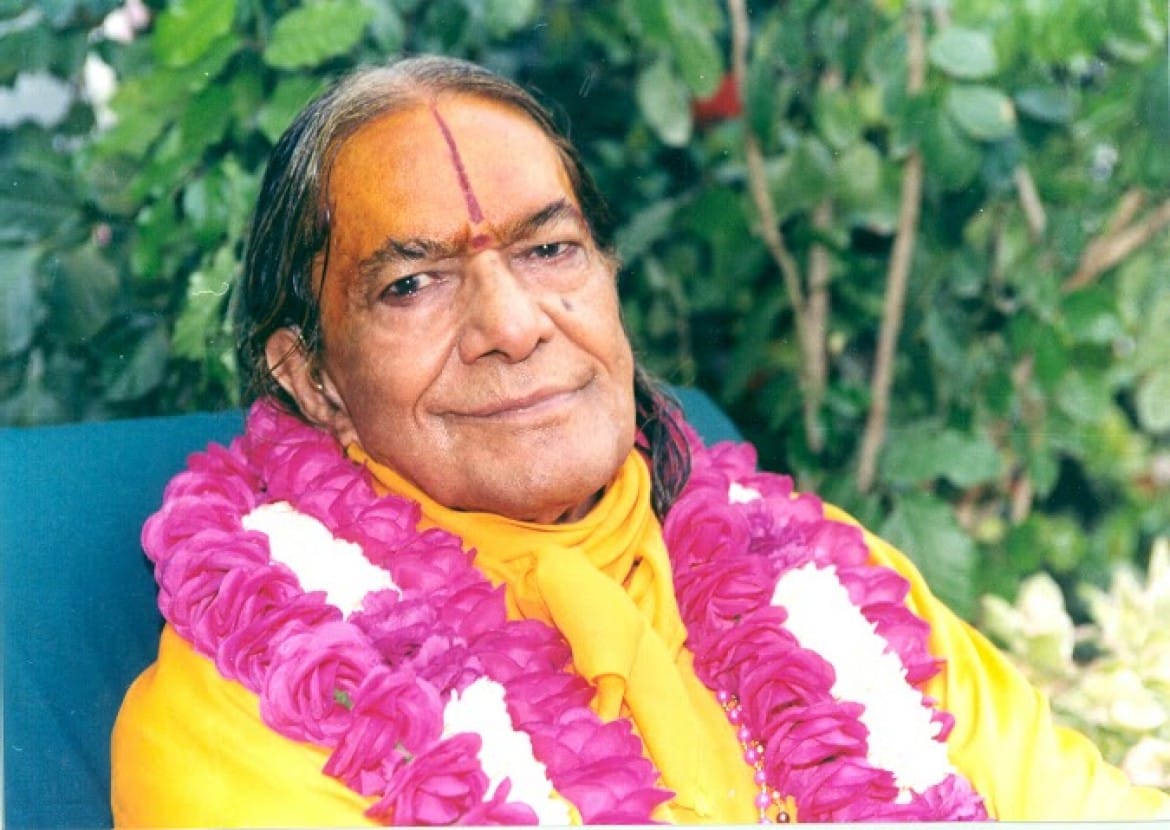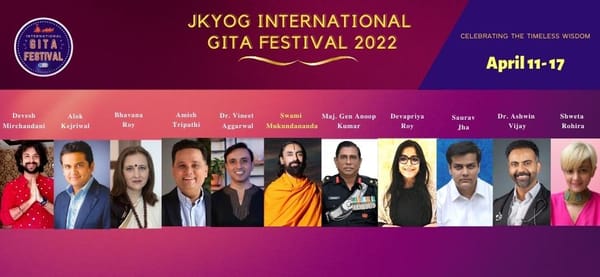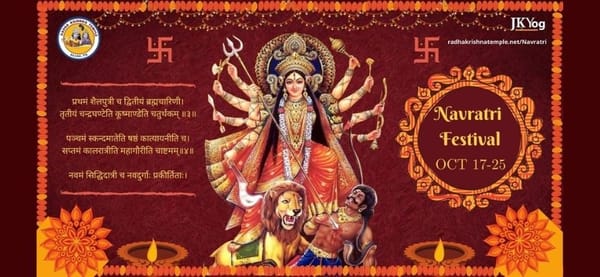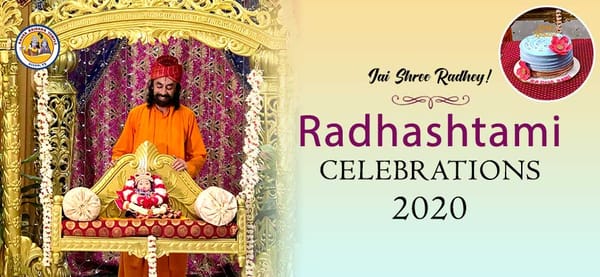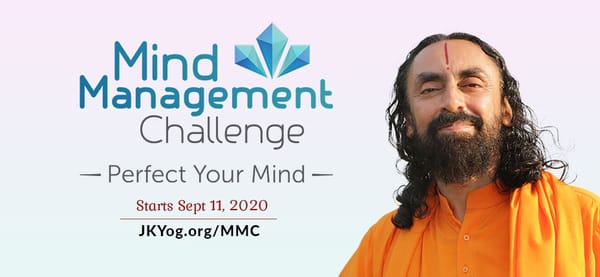guru govinda dono khaḍe, kāke lāgū pāya
balihārī guru āapane, govinda diyo milāya
In this verse, Saint Kabir asks “God and Guru are standing before me. Whom should I first pay my respects to?” And he answers, “I will first pay my respects to the Guru, for he is the one who helped me meet God.”
What a powerful statement! Kabir recommends paying our respects to the Guru before God. But if God is all-powerful and the most important entity in this world, will He not be offended at this gesture? The answer is: not at all. We have repeatedly heard in various lectures to think of God and Guru as one, that in our heart and mind there should be no difference between Guru and God.
Additionally, from the perspective of our selfish interests, the Guru is more important than God because he is the only one who can take us to God. In verse 4.34 of the Bhagavad Gita, Shree Krishna states:
tad viddhi praṇipātena paripraśhnena sevayā
upadekṣhyanti te jñānaṁ jñāninas tattva-darśhinaḥ
“Learn the truth by approaching a Spiritual Master. Inquire from him with reverence, and render service unto him. Such an enlightened Saint can impart knowledge unto you because he has seen the truth.”
The question that arises is why? Why do we need a Guru on this path? The reason is that God does not initially come before us. He has a rule: Nirmala mana jana so mohin pava. “I am attained by the pure at heart.”
So, how do we purify our heart? God will not manifest before us to teach us, because presently our heart is samal (impure), not nirmal (pure). This is where the Guru comes in. He does the work of a sweeper; he cleans our heart and helps us qualify to meet God. When we finally become nirmal,then God reveals Himself to us. So, the credit of bringing us to that point goes to the Guru.
The Guru is our spiritual mentor who guides us on the journey to inner perfection. The word “Guru” consists of two syllables—gu and ru. Gu means “darkness” and ru means “one who destroys.” Thus, the Guru is the personality who destroys the darkness of ignorance from within us and brings us into the light of divine knowledge. The Guru does all the hard work of purifying ourantaḥ karaṇ, tolerating our negative behaviors and thoughts, and shielding and protecting us from the external world. It seems to be a thankless job as we can never repay the debt to our Guru.
The Guru must possess two qualifications. First, he/she must have read and understood the scriptures i.e. should possess the theoretical knowledge of the scriptures. Second, he/she must have realized knowledge as well. After all, we wouldn’t want someone who only “talks the talk” but hasn’t “walked the walk” to guide us, would we?
There are two further aspects to the first criteria. First, why is it important for the Guru to have read the actual scriptures? Will it not suffice if the Guru has read some books or earned a degree on this topic? Second, why is it that only the Guru can teach us the scriptures? Why can anyone else like our family or friends not teach us the scriptures?
The answer to the first question – why do we need to understand or follow the scriptures on this journey was addressed in the blog “Why Should We Trust the Scriptures?”
Now let’s address the second question that why do we need a Guru to teach us the knowledge from the scriptures. When it comes to scriptural knowledge, the Vedas are very challenging to understand because of something called parokṣhavād. This means that the same word is used to convey different meanings. How will we or anyone else who is inexperienced know what meaning is intended and where? Unfortunately for us, the Vedas do not come with their own dictionary or manual. As the Guru is the expert authority on this topic because he possess both the theoretical and practical knowledge, it is best to inquire from him and let him guide us.
We also have a tendency to ask others for something we do not understand. While this is helpful in certain situations, in this instance it behooves us to keep in mind that everyone’s knowledge is limited and their understanding is tainted by the three guṇas of sattva, rajas, and tamas. Their mind is equally unreliable as they are also under the influence of Maya. So once again, we are back to the expert – the Guru. After all, the intellect of such an entity has been illumined by the divine knowledge.
So, if our goal is nishkam prem (selfless love), then the Guru is the representative of God who is perfectly positioned to teach us about it. This is why from our selfish perspective, the Guru is more important than God himself.


